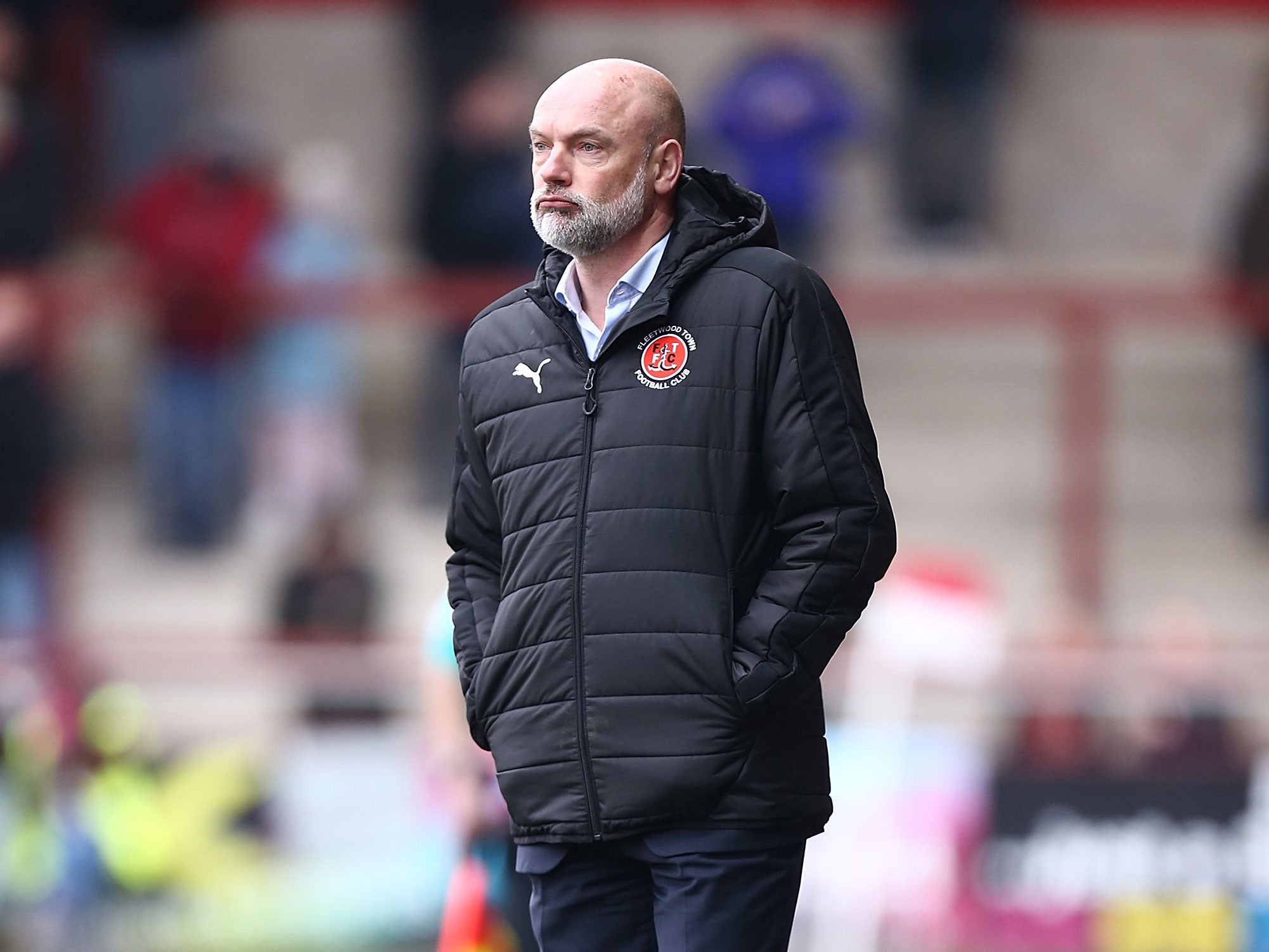Fleetwood Town aspire to reach the same level as Jamie Vardy but it has never been harder for smaller clubs
Vardy's former employers are his equivalent in club form but will do well to maintain their meteroic rise through the leagues

The beauty of English football’s league pyramid is in the aspiration it inspires. The opportunity is there, in theory at least, for the smallest of clubs to rise to the summit on sporting merit alone.
This is taken as a fundamental aspect of competitive football by most in this country, but at a time when developing leagues elsewhere debate the merits of ‘pro/rel’, it seems almost archaic and overly-romantic that the world’s most-established league system stretches down some 480 divisions, encompassing more than 7,000 teams, the vast majority of which compete against each other in the same cup competition every year.
The stories of those who successfully rise up this creaking, inconsistent but alluring structure capture imaginations and if one current player’s career best reflects the possibilities inherent in that the 130-year-old pyramid, it is Jamie Vardy.
Vardy’s career history is well-documented now but we will hear about it all over again this weekend, even if he is not fit to play for Leicester City in the FA Cup third round. Leicester’s opponents will be Fleetwood Town, one of the clubs he passed through on his way up eight league tiers towards a starring role in the greatest story our national sport has ever told.
Yet if Vardy’s story has a club equivalent over the last decade, it is his former employers and opponents on Saturday, whose rise from the eighth-tier to League One offers a more representative account of what it takes to climb through the ranks of modern English football.
When local utilities businessman Andy Pilley assumed control of Fleetwood Town in early 2004, the club was playing in the North West Counties League. The introduction of two regional Conference divisions the following summer saw Fleetwood drop further down the pyramid still to level nine, but that would be the only backwards step of any sort under Pilley's stewardship.
The chairman’s significant investment, as well an eye for and an ability to procure talent, led to a remarkable rise through the leagues, with six promotions over the course of a decade. A pattern began to emerge too. After back-to-back promotions in Pilley’s first two full seasons, Fleetwood would spend one year adjusting to their new level, acquiring the best players that standard of football could offer. A year later, they would progress again.
This pattern was sustained through the Northern Premier League, the Conference North and the Conference Premier, which they won in 2012 with the help 25 goals from Vardy. Fleetwood was now the smallest town to be represented by a Football League team and still was until last May, when Forest Green Rovers gave the 7,746 residents of Nailsworth in Gloucestershire something to celebrate.

Pilley and Fleetwood did not stop at Football League status however and, after plucking a £1m asking price out of the air for Vardy, receiving every penny of it from Leicester and duly spending it on more players, the pattern was repeated once again. In the 2013/14 season, after two years of League Two football, the steady progress persisted and Fleetwood were promoted to the third tier.
That was more than three years ago now though. The pattern is broken, with finishes of 10th, 19th, 4th and a current league position of 12th, the division’s halfway point. Fleetwood are far from stagnant. Uwe Rosler’s side were defeated play-off semi-finalists last season and are only seven points outside League One’s top six this term, but for the first time in a decade, while watching their former striker continue his rise, Vardy’s old club has seen their own momentum slow a little. They have had to consolidate their position, reassess their strategy and think more carefully about how their seventh promotion comes about.
It will be difficult. If Vardy’s journey from semi-professional football to the elite is rare, it is rarer still for a semi-professional club to do the same. As Pilley concedes to The Independent’s Simon Hughes in On The Brink: A Journey Through English Football’s North West, Fleetwood’s ceiling may be the Championship. That may be because only one of the 44 clubs that currently occupy England’s top two tiers have spent time in non-league football since the end of the Second World War.
That club, Burton Albion, sit in the Championship’s relegation places at the moment and, for now at least, they look unlikely to emulate Wimbledon and Wigan Athletic by rising into the top flight and winning the FA Cup. Wigan themselves have yo-yoed between the Championship and League One since their years of top-flight football. Wimbledon, the only club to effectively rise through the pyramid twice, are trying to keep their heads above water in the third tier. Yeovil Town spent a single season in the Championship four years ago but now find themselves in the lower reaches of League Two, among several other historic non-league names for whom retaining Football League status is the main priority season in, season out.
Behind these clubs is the Conference they came from, only much has changed. Now named the National League, it is essentially England’s fifth professional division, with more and more clubs taking up full-time status and the financial obligations it entails, hoping it will help them to secure one of just two promotion places. Not far from Fleetwood, in Kirkham and Wesham, AFC Fylde are one such club investing heavily, confident Football League status will be achieved in the years to come. This season, Dover Athletic, Bromley and Sutton United join more established names like Wrexham, Macclesfield Town and Tranmere Rovers in chasing the same dream.
Yet those that achieve it, even those that win a further promotion still, will soon realise, like Fleetwood, that the Football League may be more competitive now than at almost any time in its modern, post-war history. Vardy’s story has given hope to thousands of semi-professional footballers that their performances will not go unnoticed by those at the top of the game, but for the clubs they play for, it has arguably never been harder to reach the pyramid’s summit.
Join our commenting forum
Join thought-provoking conversations, follow other Independent readers and see their replies
Comments
Bookmark popover
Removed from bookmarks